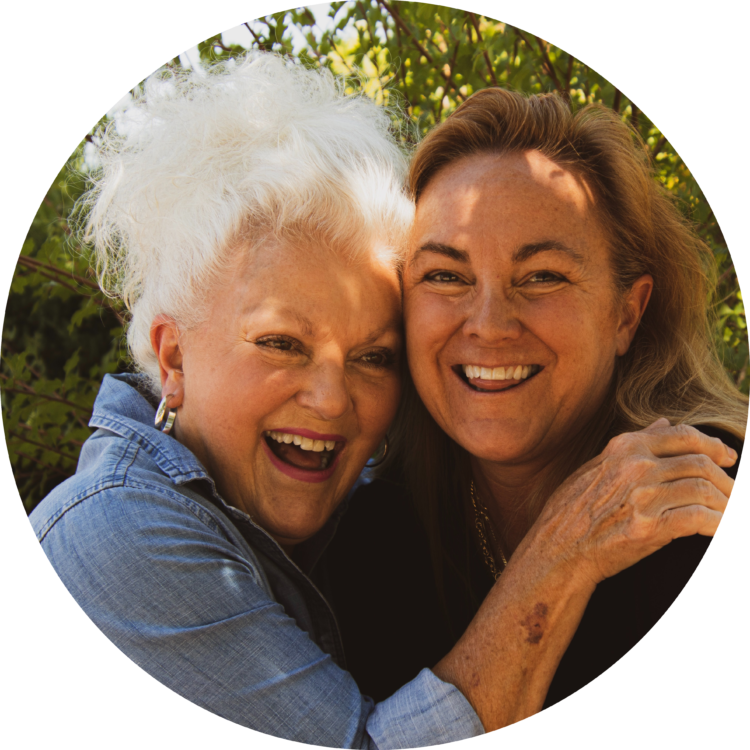According to Dr Lisa Mosconi, there are 850 million women in the world going through perimenopause, right now. Don’t worry if you haven’t heard of perimenopause. It’s a word that 40% of women are unfamiliar with, according to Over The Bloody Moon’s recent survey conducted with over 500 women in the UK. Strange, as this is a physical and mental transition that lasts longer than puberty (ranging between 4 and 8 years for most) and can have a devastating impact on confidence, brain function, stress management, sleep and that’s before we’ve got to the physical symptoms that mark this period in a woman’s life.
Perimenopause is the stage ahead of menopause (which lasts for just one day by the way, 365 days after the final period) when hormone levels fluctuate. It’s this yo-yo effect that plays havoc with women’s bodily and cognitive functions, as well as triggering the ageing process. For most women, this begins in their late thirties but becomes more noticeable in their early 40’s. Talk about losing one’s mojo, energy or libido and not feeling ‘quite right’ is rife. As mental symptoms often precede physical ones, both women and their doctors more commonly blame other stresses in life for how they are feeling, rather than join the dots between stress and low mood, and perimenopause. As there is no mandatory medical training or education for healthcare professionals on menopause, up to 70% of women are routinely offered anti-depressants rather than HRT in the UK and it takes 30% of women, on average 3 years to be correctly diagnosed (according to a study July 2019, Newson Health). More than half of women feel unprepared for perimenopause, describing it a surprise, according to Avon’s recent global study “Too Little Information” with women not expecting symptoms to be as strong as they were.
For 25% women, perimenopause can be a time when they feel like they are slipping away, consumed with depression and anxiety (Source: NHS). Lesley Salem founded Over The Bloody Moon at the beginning of this year, running workshops, programmes and an online self-care and research space, developed with leading menopause experts to help women avoid the perimenopause crash and burn. Daily conversations with her community reveal how severely perimenopause can affect women.
“I’ve lost my voice…it’s how I describe myself as I’ve lost all my confidence and worry that others will think I’m being irrational. So, I don’t speak, or I speak very quietly. This is totally out of character for me.”
“I feel like I’ve become invisible. No one understands how I’m feeling. I am struggling to function at work, and I feel like a stranger in my own home.”
Today’s perimenopause experience is unlike that of any other generation. We are operating under enormous strain, trying to cope with our own hormonal symptoms along with other stressful conditions that life throws at us. This is as a result of us having kids later in life and needing to support them and ourselves for longer with a retirement age that’s always on the rise. Perimenopausal women are working at a demanding pace, dealing with stroppy hormonal teens at home (not a good combination) and caring for elderly parents. The one thing women complain to me about is their lack of time. “We don’t have time for perimenopause – to prepare for it or deal with it.” Our mother’s had time to stop, reflect and work out what their new, self-guided purpose was going to be in life. Our generation are in the thick of it. Life forces us to disconnect with our bodies and mind until we explode. Quite simply, perimenopause is a ticking time bomb.
How is it that we are living in an era of unprecedented knowledge and yet we have half our population going through perimenopause with limited awareness of symptoms, no formal education on this significant stage in life and with NHS doctors that often misdiagnose or worse, tell women to grin and bear it? The fact is that if women haven’t been taking care of themselves in perimenopause, they are much more likely to develop problems post menopause. 70% women will experience vaginal atrophy (dryness, irritation, incontinence). 40% pelvic prolapses. Both these can be avoided with self-care in one’s 40’s and 50’s. 2 in 3 women develop Alzheimer’s, linked to oestrogen decline. Our risk of heart disease and strokes doubles every decade after menopause which also is a trigger for osteoporosis of which 80% of sufferers are women. 60% women will experience incontinence, 30% of our skin elasticity is lost in the first 5 years post menopause and so the list goes on.
Whilst genetics play a part, our health outcomes and quality of life are mostly down to the lifestyle choices we make. 80% of our health can be controlled by us and in an era where we have been given the gift of ‘extra time’ surely, we want to be able to make the most out of it.
So, let’s not bury our heads in the sand when it comes to perimenopause. Let’s not wait until the symptoms become undeniable but instead be prepared and ready for it. Our 40’s and 50’s represent a window of opportunity to be seized, in terms of introducing positive habits and making lifestyle adjustments to enhance our physical and mental health. After this age, the effects of low oestrogen can create irreversible damage. With the right information, women can learn that there is plenty they can be doing to help themselves to alleviate the severity and frequency of their symptoms, either in addition or as an alternative to HRT. Introducing positive habits that help us to manage stress, eat, move and sleep well, as well as building a network of support, are all evidence-based ways to manage perimenopause.
Our guest writer Lesley Salam is founder of Over the Bloody Moon, an organisation which aims to help women feel in control of their bodies and mind, equipping them for perimenopause with facts & self-care tips.


So helpful, I went to the GP and got scoffed at when I mentioned my symptoms might be peri-menopause (I am 39). But I believe that I am dealing with the hormonal effects of coming to the end of my reproductive life, even if that process might take the best part of 8 years! I use herbs and acupuncture to manage the resulting hormonal imbalances with healthy lifestyle choices but I know I need to learn more.
We’re so glad this post spoke to you – its a real possibility. There are many services and groups dedicated to supporting women through what can be an empowering change and we want you to know you are not alone x